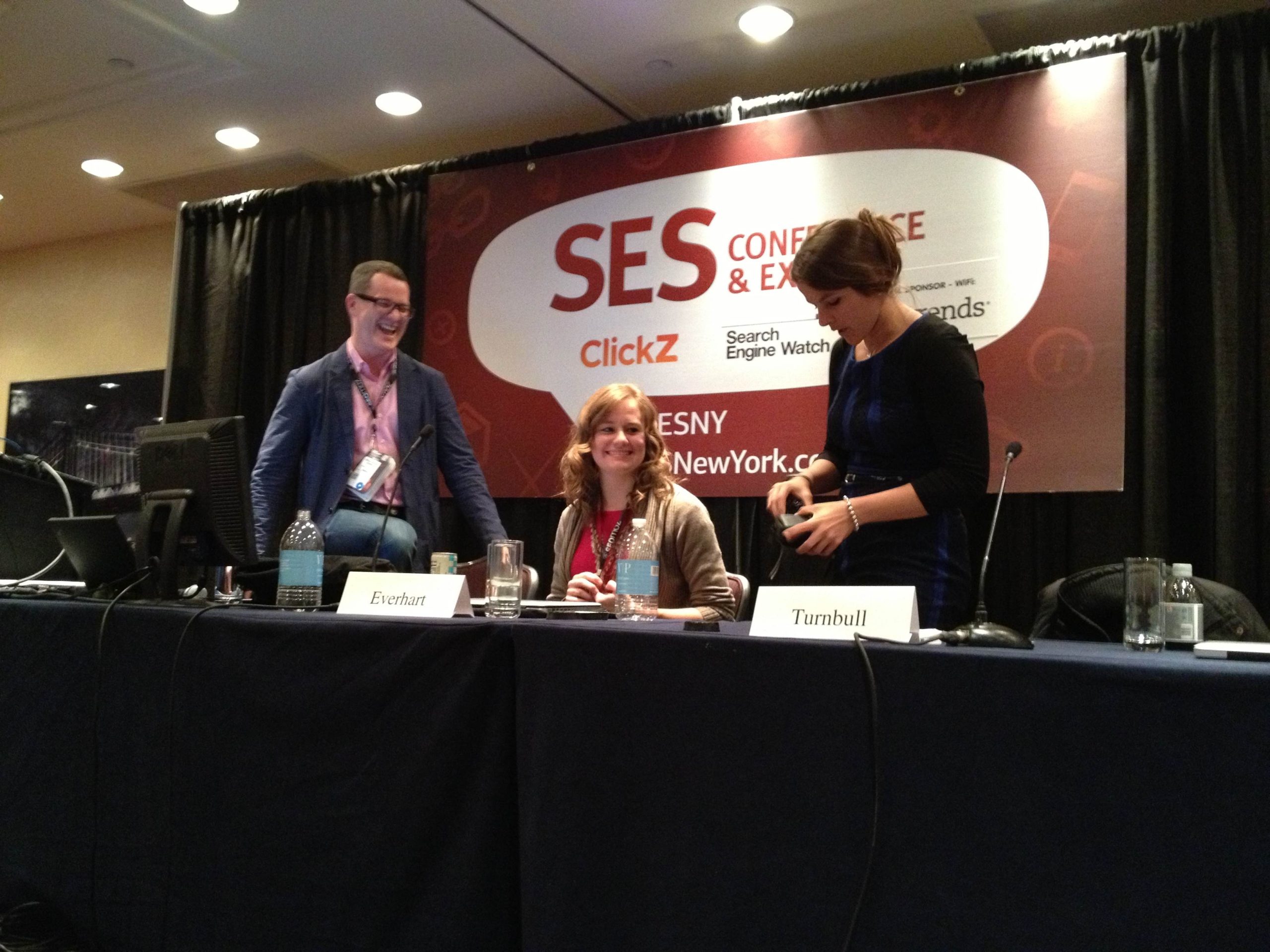Every SEO or content marketing professional knows link building is a less-than-rewarding task. Even with unpaid, honest attempts at guest blogs, marketers can spend countless hours reaching out to potential partners about linking opportunities, but rarely do they ever pierce through email clutter and make actual connections. In a presentation at SES NY, 352 Media Group’s Director of Web Marketing Erin Everhart compared intrusive link building to proposing to a stranger upon first meeting him or her. In a lot of ways, she’s right.
Both Everhart and Founder of SEO Jo Blogs, Jo Turnbull, emphasized that brands and individuals must rethink how they approach linking. Because internal and external links still matter for PageRank and search results, the industry needs to mature and discover how linking can regain some credibility it lost in the face of Penguin and all of the spammy activities taking place online today.
Turnbull focused on the importance of personal relationship building through the day to day. For bloggers or marketers, look at every experience as a networking opportunity, and understand if professional gain can come from in-person and online interactions. She highlights five ways to build relationships: Being honest and open, attending events, taking the long-term view, doing something different and asking why anyone would want to associate with you or your brand.
Getting started with relationship building
Be honest – Don’t be afraid to approach personal and professional contacts. Engage in the community to find like-minded peers who can also gain something from a newly formed relationship.
Attend events – Approach people at conferences to connect with professionals who might add value to your website. The CMI reports that many businesses refer to in-person events as part of content marketing efforts.
Think long-term – Too many companies think relationships form overnight, and that’s simply not true. Put in the time to cultivate these connections.
Do something different – Pave the way – stand out.
Why you? – Identify what you want out of a relationship and consistently prove that your company is worth a contacts’ time. Set goals.
But where do agencies go to build these relationships?
Turnbull offered great advice to bloggers and community managers, and agency folk got more actionable tips on cultivating relationships from social media connections from Everhart. It’s one thing to understand that relationship building trumps dodgy link building, but it’s a whole other game to know how to create those situations where a potential connection turns into a business opportunity.
Everhart asked the audience, “Who are you building relationships with?” and she answers her own question, “The people behind websites, not the websites themselves.” This is obvious, but not every marketer or blogger thinks this way. Relationship building requires a certain sense of personality, charisma and desire to actually glean more out of a connection than a link.
Social media – the best tool for relationship building
It should be obvious: Social media sites like Twitter and LinkedIn provide quality starting points to building industry contacts. Want to build relationships with people more likely to act as brand ambassadors for your company? Reach out to social connections who have already opted-in for your social media content. Analyze your Twitter followers, look at who connects to your LinkedIn account, and then begin actual conversations with key figures. Everhart also urged the audience to remember mass media outlets – journalists love relationship building, too.
Analyze your Twitter followers, look at who connects to your LinkedIn account, and then begin actual conversations with key figures.
Brands should also analyze their competitors’ followers. Those social users can become invaluable resources for both relationship and link building, but also for lead generation and website conversions. Everhart tells listeners to tap into the breadth of data available for free on LinkedIn, Pinterest and Twitter.
When it comes to reaching out, now what?
After companies have researched their options, and they’re ready to foster relationships with new connections, picking the right channel is key. Email can get lost in the clutter – think about how many inboxes get slammed by thousands of messages each day. Everhart suggested a straightforward and simple subject line can be an honest approach to relationship building online. In her own experiences, starting a conversation with someone using the line “Hi <person’s name>” generates clicks and gets people’s attention.
At Brafton, we believe that content marketing is the ideal relationship-building practice. When brands provide their new and existing customers with educational information, they become essential resources, which Everhart emphasized is the most important part of relationship building. “The more information and guidance you can provide prospects, the higher the odds that your newly formed relationship will reciprocate your good will in the future,” she noted. Everhart also suggested that attendees consider reaching out to school organizations that operate within the same industries. For example, a Boston-based marketing agency might reach out to EMcomm, a student-run Emerson College ad agency, for mutual link building and guest blogging opportunities.
Everhart concluded the session saying, “Relationship building must fit into the broader picture. Make sure your site’s user experience lives up to your hype – you need to be entirely presentable when engaging with new relationships online.”




